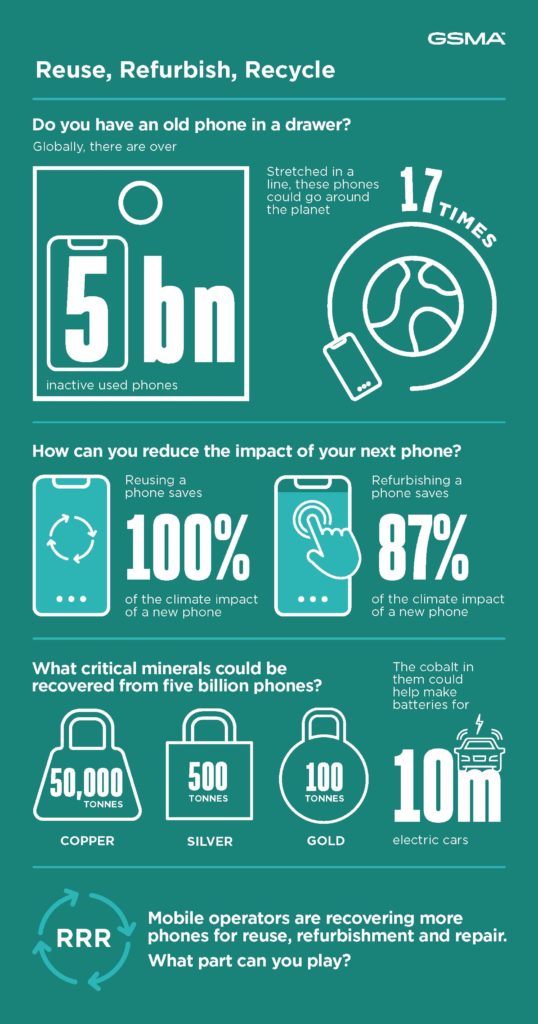Reuse, Refurbish, Recycle
More than 5 billion mobile phones are currently sitting unused in homes and offices globally. Mobile operators are targeting these phones for reuse, refurbishing or recycling as part of a more ‘circular’ supply chain for mobile phones.
As part of this circularity ambition, 16 leading operators around the world – BT Group, Deutsche Telekom, Globe Telekom, GO Malta, Iliad, KDDI, NOS, NTT Docomo, Orange, Proximus, Safaricom, Singtel, SoftBank, Tele2, Telefónica and Telenor (as at March 2024) have signed up to a new set of pace-setting targets developed with the GSMA. The new goals aim to build upon the existing initiatives of the mobile industry and accelerate the move away from a ‘take-make-dispose’ approach towards a more circular economy for mobile phones. Operators are committing to:
- Increase take-back of mobile phones
- By 2030, the number of used mobile devices collected through operator take-back schemes amount to at least 20% of the number of new mobile devices distributed directly to customers.
- Avoid recovered mobile phones being sent to landfill or incineration
- By 2030, 100% of used mobile devices collected through operator take-back schemes will be repaired, reused or transferred to controlled recycling organisations.
Alongside existing commitments, this new set of goals is intended to help extend the longevity of existing mobile devices sitting dormant by giving them a second life through refurbishment and reuse. By ensuring that recovered phones are not sent to landfill or incineration, old and broken phones can be responsibly recycled to recover critical minerals that can be reused in new smartphones, helping to reduce the environmental impacts of mining.
New Research
New research by the GSMA has shown there are over 5 billion inactive used mobile phones globally.

This latest announcement builds on the GSMA’s Strategy Paper for Circular Economy: Mobile Devices. This paper lays out a vision for “Devices with as long a lifetime as possible, made with 100% recyclable and recycled content, 100% renewable energy, and where no device ends up as waste”.
Further collaboration between mobile network operators, device manufacturers, customers and repairers will be needed to fully achieve this vision.

